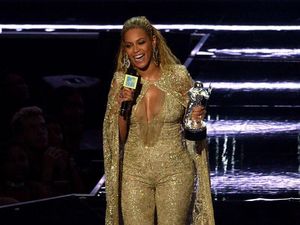As you start that New Year diet - the food fads that left a bitter taste in the mouth
Another new year means, for many people, another attempt to get in shape.
And for many desperate to shed the pounds it’s hard to resist the quick fix promised by celebrity-endorsed dieting trends.
From Atkins to the raw food movement, crazes come and go, often promoted by seemingly flawless movie and music stars.
Although fad diets may seem like a modern invention, they’ve been around in one form or another for centuries.
The first ever book on dieting is believed to be William Banting’s Letter on Corpulence, which was published in London in 1864. The formerly overweight accountant wrote about his success after replacing an excessive intake of bread, sugar and potatoes with mostly meat, fish and vegetables.
It was 18th century poet Lord Byron who was the first celebrity dieter. He credited his thin, pale look to vinegar and water – a practice that would re-emerge in the 1950s as the popular Apple Cider Vinegar Diet, which instructed people to drink a mixture of equal parts honey and vinegar to curb cravings and cut fat.
A variation on the theme came in 1941 when alternative health enthusiast Stanley Burroughs created the Lemonade Diet, in a bid to eliminate cravings for junk food, alcohol, tobacco and drugs.

All followers had to do was consume a mixture of lemon juice, maple syrup, water and cayenne pepper six times a day for at least 10 days. It made a comeback in 2006, when singer Beyoncé claimed it helped her to lose 20lbs in two weeks.
The Last Chance Diet, published in 1976, consisted of drinking a very low-calorie liquid a few times per day. The main ingredient was a blend of predigested animal by-products including hide, horns and tendons. But this “meat smoothie” was taken off the market after it had fatal consequences for some followers.
The Seven Day Colour Diet, from 2003, suggested eating foods of only one colour each day – so red day would include tomatoes, apples and cranberries. It was praised for encouraging people to eat fruit and veg, but there were concerns that it did not provide a balanced diet.
Dangerous
One of the most bizarre from recent years was 2013’s cotton ball diet, which involved swallowing up to five cotton balls at a time to suppress the appetite. It was soon condemned as dangerous because of the risk of internal obstruction.
And 2020 is likely to come with new fads, according to the The British Dietetic Association’s (BDA), which represents dietitians across the country, identifying some the wildest celebrity diet fads they want people to avoid this year.
They include intravenous (IV) vitamin drips which celebrities such as Rihanna and Chrissy Teigen claim they can do almost anything from quickly fixing a hangover to burning fat or fighting jet lag.
But registered dietitian Marcela Fiuza says there is no evidence that the drip has any benefits for most people.
“Any time you have an IV inserted, there is a risk of infection as well as risk that a vein could become inflamed or blocked with a clot. This risk is increased when unqualified people are doing it.
“There is also a risk that you will get too much of the vitamins. This can have serious health implications, particularly for those having it regularly.”
Hair Gummies have been promoted by the likes of Khloé Kardashian, Kris Jenner and Vanessa Hudgens on Instagram. These multivitamins, which cost £20 to £30 a month, will give us healthy, luscious locks – or so the celebs say.
Deficiencies
But BDA spokeswoman and dietitian Aisling Pigott says there is no evidence that they work.
“Another celeb, another false nutrition claim,” she says. “Hair and skin health are influenced by many factors including lifestyle, hormones, genetics and diet. To imply that taking a vitamin tablet can ‘give us better hair’ is based on zero evidence. Vitamin and mineral deficiencies which affect our hair are rare, but an overall poor diet can impact our hormones and stress levels.
“This is irresponsible advertising from celebrities endorsing products which lack scientific evidence. If you want to get the best out of your hair, and save some cash, enjoy a balanced diet with the right amount of energy, fruit and vegetables.”
Beyoncé’s 22-day diet is another one that has been growing in popularity and is based around the principle that 21 days is enough to make or break a habit.
The end goal is that come day 22 followers will be a convert and stick to eating a vegan, plant-based diet.
There are benefits to this diet although experts say it will take longer than 22 days to see any desired results and it’s one that could be followed without the $99 expense of signing up for the plan.
“If you had the skills and knowledge on how to eat a plant-based diet, then you could do this on your own,” says BDA dietitian Anna Daniels.
“This could be a good way for someone to want to kick start a better way of eating and reduce their intake of high fat, high salt foods. However, it will certainly take longer than 22 days to eat optimally and for good health and longevity.”



